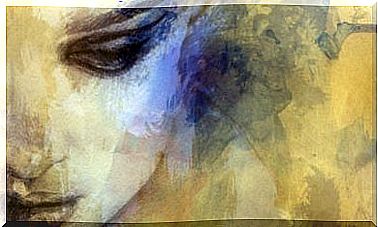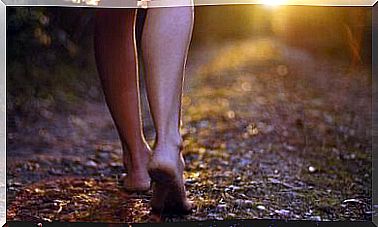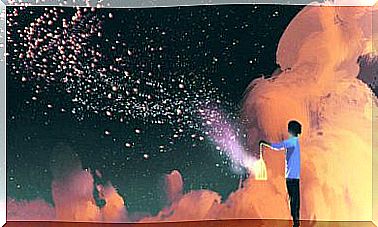5 Quotes From Lao-Tse To Reflect On
Lao-Tse is a Chinese word meaning “old master”. It is also the name of the philosopher and thinker who probably lived in the 7th century. He is believed to have written “Tao Te Ching”, but is also a figure covered in mystery. Many people doubt that he really existed at all.
What we know for sure is that an intellectual legacy under the name “Lao-Tse” has reached this age. It does not matter if it is a man or many. What is important is that he shared lessons that are still relevant thousands of years later.
We must acknowledge Lao-Tse for his legacy of wisdom. His thoughts reflect many of the essential principles of Eastern cultures. They are about good judgment, simplicity, and serenity. They exalt intelligence and moderation. Here we will share five of his amazing quotes and advice.
1. Happiness according to Lao-Tse
Lao-Tse reflected on happiness. From his point of view, and many centuries before consumerism, the philosophy of the East separated happiness from possessions. A timeless quote on the subject says “The person who is not happy with a little will not be happy with a lot either”.
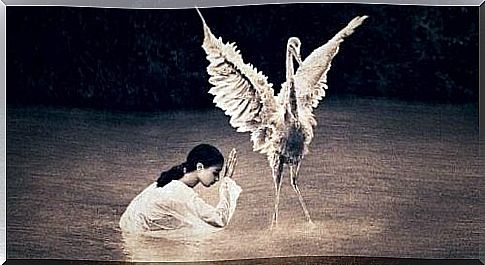
This quote places happiness within a framework where it does not matter what one has. Having a little is not the same as unhappiness. Having a lot is not the same as happiness. We achieve well-being through things that have nothing to do with possessions. Happiness and unhappiness both exist in being, not in what surrounds us.
2. About stiffness and flexibility
Many people say that it is good values to be persistent and strict. But this perspective seems to forget the logic of being alive. Where there is life, there is change. And change requires adaptation. Instead of being like steel, life requires us to flow like water.
Lao-Tse left us with another wonderful thought on the subject: “In life man is flexible and one develops. In death one is rigid and unchanging. Plants in the sun are flexible and fibrous, but they appear dry and crackable. That is why flexibility and resilience are associated with life, while rigidity and immutability go hand in hand with death. ”
To love and to be loved
Long before humanistic doctrine emerged and became popular, Lao-Tse offered us a vision of love as power. He emphasized the profound differences between loving and being loved, in one of his quotes: “Being deeply loved gives you strength, but loving someone deeply gives you courage”.

There is a subtle but important difference between strength and courage. We can define strength as the physical or subjective ability to do something. Courage, on the other hand, has to do with the choice to do something. Strength is being able to, courage is wanting to do it. There are a whole lot of emotional differences between one concept and another. While wanting something may enable one to do so, the opposite is not necessarily the case.
Desire and frustration
In Asia, lust is emphatically rejected. It is considered as the background of unnecessary suffering. Their philosophy focuses more on the ability to give up what you have before looking for what you desire. Lao-Tse offers these words according to this philosophy:
“The person who does not covet does not get frustrated either. And the person who does not get frustrated does not get spoiled either. A truly wise person waits in silence while everything happens. Lust does not dictate anything. In this way, peace and harmony have their place, and the world follows its natural rhythm. ”
To people in the West, this idea seems almost absurd. In Western societies, ambition is something that means growth and progress. Nevertheless, our current reality proves that desire can be a bottomless pit that is not satisfied.
5. To fight or to retreat
The East is home to martial arts. Paradoxically, the majority of martial arts instruct the practitioners to avoid combat whenever possible. The greatest wisdom that war provides is precisely that we must do our best to avoid it. Lao-Tse’s philosophy confirms this idea with its quote: “The strategy book says: do not provoke a struggle, accept the situation; it is better to retreat one meter than to step one centimeter forward ”.
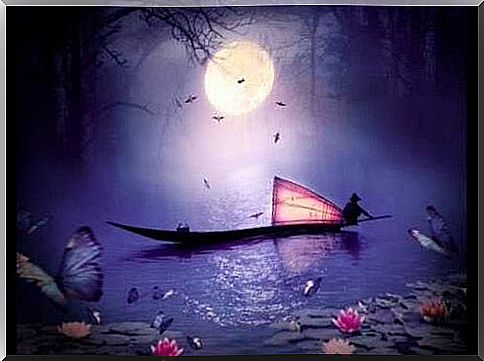
Lao-Tse’s thinking is without a doubt a great gift of wisdom to the world. It not only offers the art of living well, but uses the language of poetry to share its lessons. We have much to learn from this millennial person who seems more alive today than ever before.



